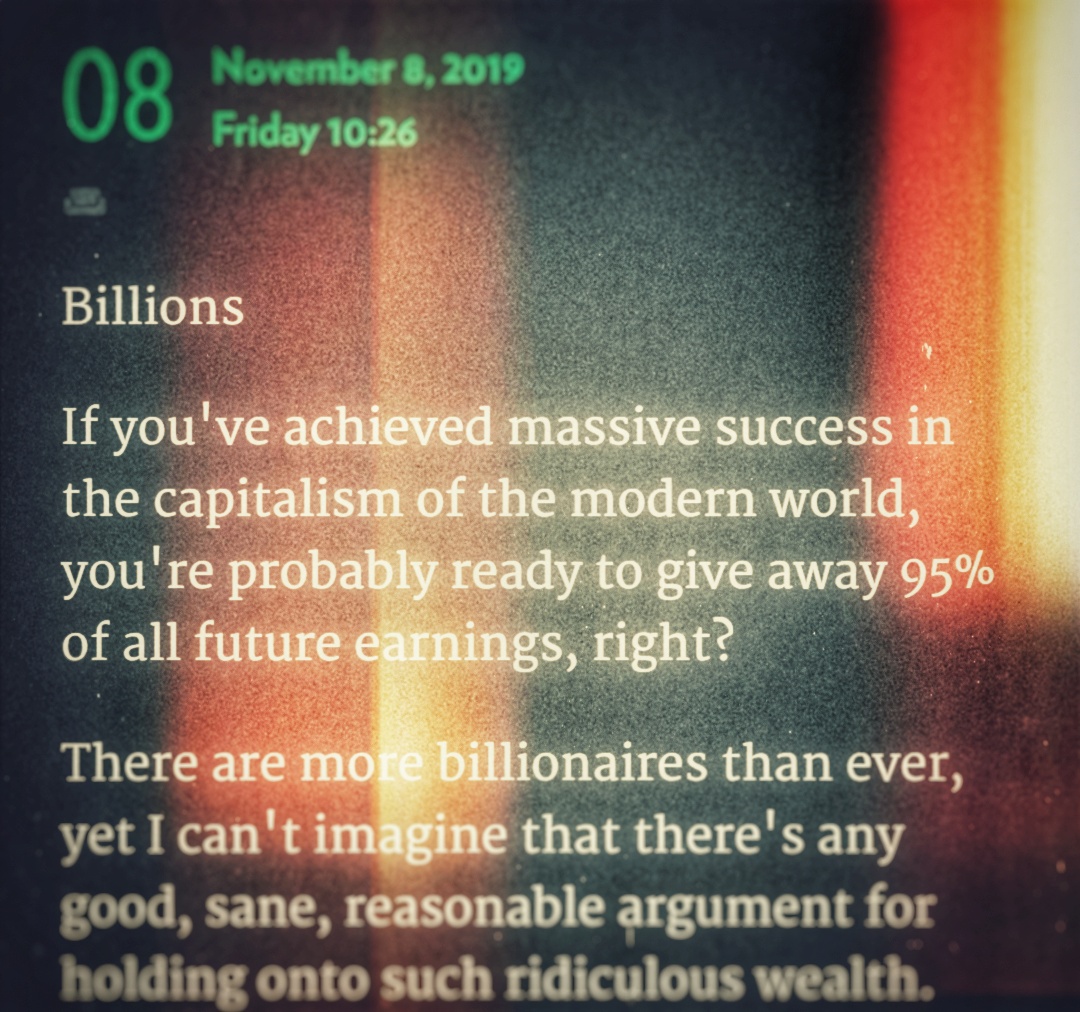If you’ve achieved massive success in the capitalism of the modern world, you’re probably ready to give away 95% of all future earnings, right?
There are more billionaires than ever, yet I can’t imagine that there’s any good, sane, reasonable argument for holding on to such ridiculous wealth. When you’re in the position to buy islands and countries, something is horribly wrong. Obviously, everyone has differing values regarding money, wealth, and how one spends, invests, or gives of their riches — if they do at all. My issue is with the psychology behind hoarding, and the philosophy of business and related practices beyond the scope of thousands of millions of dollars.
What I’ve observed in recent years is the increased momentum of giving, donating, investing, and otherwise spending that the ultra-rich are doing.
Thanks to paradigm-shifting challenges such as The Giving Pledge, and others, it’s clear there is massive wealth in the world — and perhaps the greater challenge will be how best to allot such enormous funds going forward; many people have incredibly underdeveloped, uneducated, misinformed, and misguided ideas about how to best change the world, and a lot of myopic or biased generalities will likely do much more harm than good.
We haven’t yet matured into a universal mindset, unified in deriving solutions that consider all of humanity, all of the planet, and all of the values, issues, worries and concerns of our world’s cultures and communities. That being said, our basic needs are the same, anywhere you go. Perhaps that’s as good a starting point as any; there are countless homeless and suffering people, even in the wealthiest of nations, and the most beautiful of cities. A universal basic income may be a primary consideration in the grand scheme, among other long-overdue maturation in the economical practices of the modern, developed world.
Technology is advancing rapidly, and human wellbeing has to keep up, and even outpace it. If machines and A.I. and software applications are designed to increase efficiency, to increase productivity, and inevitably to replace countless traditional and menial labor jobs, humanity must concurrently, and immediately, benefit from the same. The formula can no longer be simply about share prices and bottom lines. Mega-corporations and massive multinational entities have proven effective and profitable beyond measure. It has to be about more than money, materialism, control, and outdated agendas based on either fictitious or legitimate lack and scarcity.
We know that simply throwing money at problems solves nothing. And with evermore money, this unintended problem will have to mature and evolve within a whole new level of consciousness. People — boots-on-the-ground doers, activists, impartial researchers, unified councils, communal elders, forward-thinking business magnates, innovators — and their blood, sweat and tears make things happen.
Our younger generations are desperate for something real to hold on to. They’re desperate for actual substance, for deeper meaning, and are suffering an existential crisis that has never been seen before. They’re utterly disillusioned with the state of the world, and what their parents and grandparents have left for them to deal with. Money is not a motivator. Collecting things and maintaining the status quo is becoming increasingly toxic. We’re truly demanding next-level expressions of mind, spirit, and the human body.
There are structural issues that need addressing, across the board — across the world. If you have it, give it. If you know a lot about it, engage in the discourse and get your hands dirty. If you’re ignorant, start learning. Your actions, values and beliefs today affect the generations of tomorrow.
They won’t give a shit about your billions.
Solvitur ambulando
Written by Trance Blackman. Originally published on tranceblackman.com on 08 November 2019. Revised 11 February 2021.
